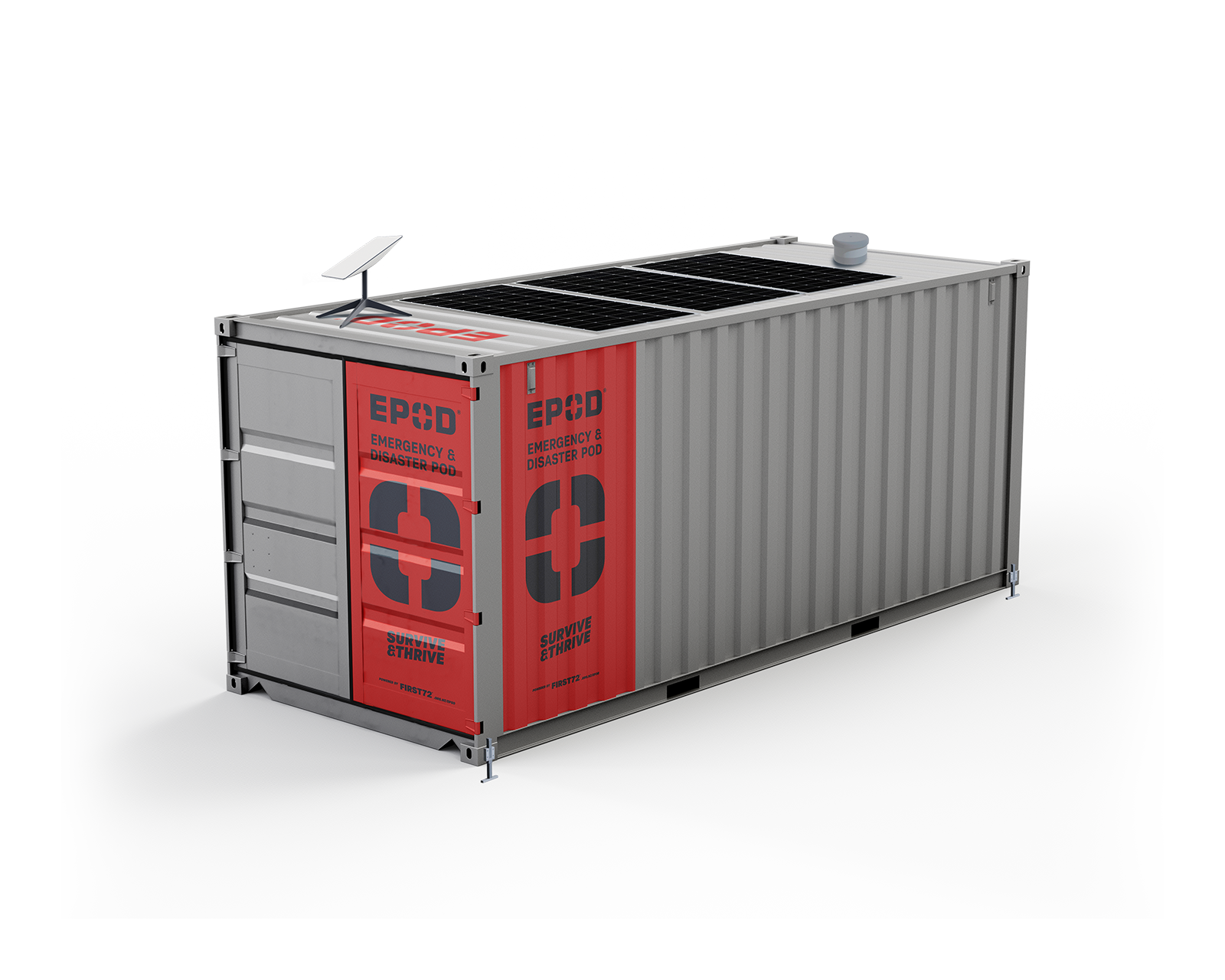In an emergency or large-scale disaster, Civil Defence and emergency services will be busy helping people and areas that need it the most. This is typically where there is an imminent threat to human life or property. Our emergency management system quickly becomes overwhelmed and limited resources are often stretched beyond their limits. As we have seen in emergencies before, communities and its people are forced to become their own local first responders and attend to situations and circumstances on their own often without immediate support. In same cases depending on the community, it may take hours, days or even weeks before help arrives and communities get the resources and support they desperately require.
We saw all of this in response to Cyclone Gabrielle. 54 communities in Hawke’s Bay were cut-off and became isolated from anywhere between 2 to 4 weeks due to the destruction of over 25 bridges. 9000 people were evacuated and housed in evacuation centers on the first night, and over 500+ helicopter flights were undertaken during the initial emergency response.
Despite this, many of our communities across the country have consistently responded to emergencies and disasters of all kinds with courage and care, and everyday heroism can be seen in every event. Preparing our communities and people with the appropriate physical and mental resources before a disaster strikes is therefore fundamental to support them to in their critical role as local first responders.
FIRST72 has a proven track record of partnering with communities across New Zealand to help build emergency preparedness and resilience. Our work not only encompasses emergency preparedness but also consulting, training, and resilience-building services to support individuals, groups and communities to prepare for future emergencies with confidence.
There is currently an enormous amount of communities across NZ preparing for emergencies in their own way, and we are passionate about supporting them but also creating a nationwide standard, system and process of emergency preparedness to help foster a network of resilient communities across they country that are unified, interconnected and supported in their own way.
Here are some of the ways that we’ve helped support communities across NZ.
We have partnered with existing and newly established Community Emergency Hubs both under the CDEM regional framework and in more informal settings. We work with them to enhance their response capabilities with essential tools, systems, equipment and resources to make them self-sufficient for the first 3 to 7 days. Our EPODs have been a common solution implemented by communities along with bespoke equipment packages depending on their different needs, risks and funding.
2. Rural & Isolated Communities
We have done a considerable amount of work preparing rural communities that are at risk of isolation. A focus on self-sufficiency is crucial for these communities as they can be expected to survive on their own for significant periods following an emergency or disaster where access to aid is limited. The majority of the 52 EPODs that we have deployed to date has focused on these communities.
We have also developed a series of training modules and workshops to help prepare communities and it’s leaders in emergency response and recovery. Our modules focus on two key parts: physical and mental resilience and readiness.
Physical Training Modules: These hands-on sessions focus on the practical skills needed during emergencies, including response drills, first aid training, equipment usage, and logistical coordination. Participants gain the confidence to act quickly and effectively in high-pressure situations.
Mental Resilience Modules: Disasters don’t just test physical capabilities—they challenge mental strength, too. These modules, developed in collaboration with experts, teach techniques for maintaining focus, managing stress, and fostering a resilient mindset under pressure.
Preparedness cannot be treated as a one-off exercise—it requires ongoing commitment. At FIRST72, we work closely with communities over time to:
To be self-sufficient, to have communications and to be able to provide power, means we don’t have to wait – we’ve got this
The EPODs generously provided by Te Rūnanga o Ngāi Tahu and Te Puni Kōkiri has given the Marae and local community the ability to be prepared to deal with any natural disaster. Having it onsite gives peace of mind that appropriate resources are readily available to be utilised when needed.
EPOD has provided exceptional customer service from concept to on-time delivery of 25 x Resilience Emergency Pods for the Wairoa district. The communities will benefit enormously from this initiative for years to follow as our area is prone to climate change and isolation in the event of a natural disaster that unfortunately eventuated recently with Cyclone Gabrielle. I would definitely recommend their services to others because of their professionalism, attention to detail and commitment to community projects.
The EPOD at Moeraki Marae in Dunedin is an invaluable resource, ensuring our community’s safety, resilience, and independence during emergencies. It enables the Marae to serve as a hub for essential supplies, education, and support, empowering whānau and visitors alike in times of need. This taonga reflects the values of manaakitanga and kaitiakitanga, strengthening our ability to care for our people and uphold our traditions.
EPODs are designed to support communities to become self-sufficient in the critical hours, days and weeks following an emergency or disaster.
Our EPODs are designed to comprehensively prepare your community and make you more resilient to future emergency events.

30 April 2024 – Update EPOD Deployed for FENZ Tinui: A New Chapter After Cyclone Gabrielle We are proud to announce a significant milestone for the small rural community of…
FIRST72 partners with Ngāi Tahu to deploy 22 EPODs across the South Island

Find out how our EPOD Emergency & Disaster Pods can build resilience and self-sufficiency in your community. Download our helpful guide.